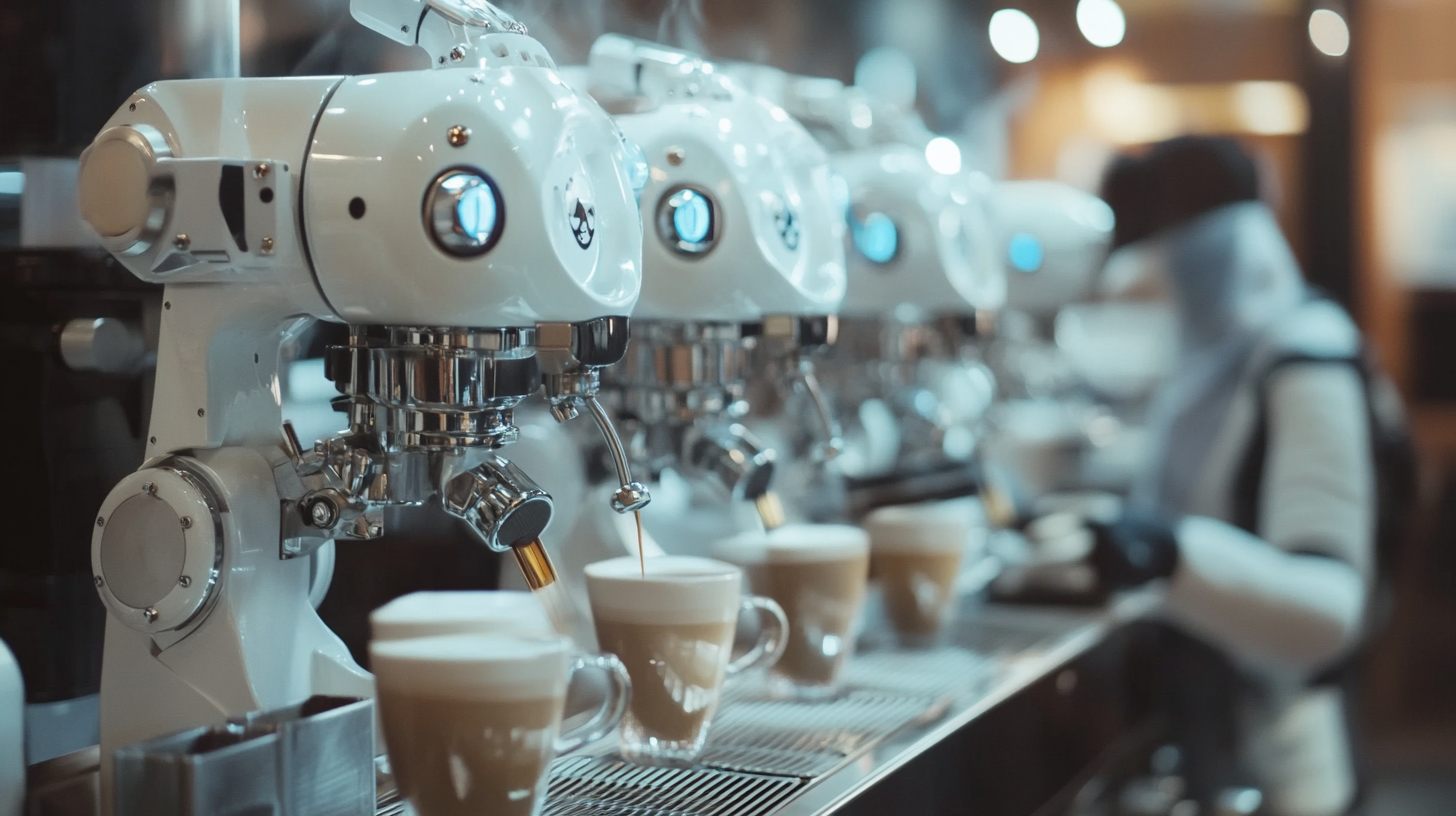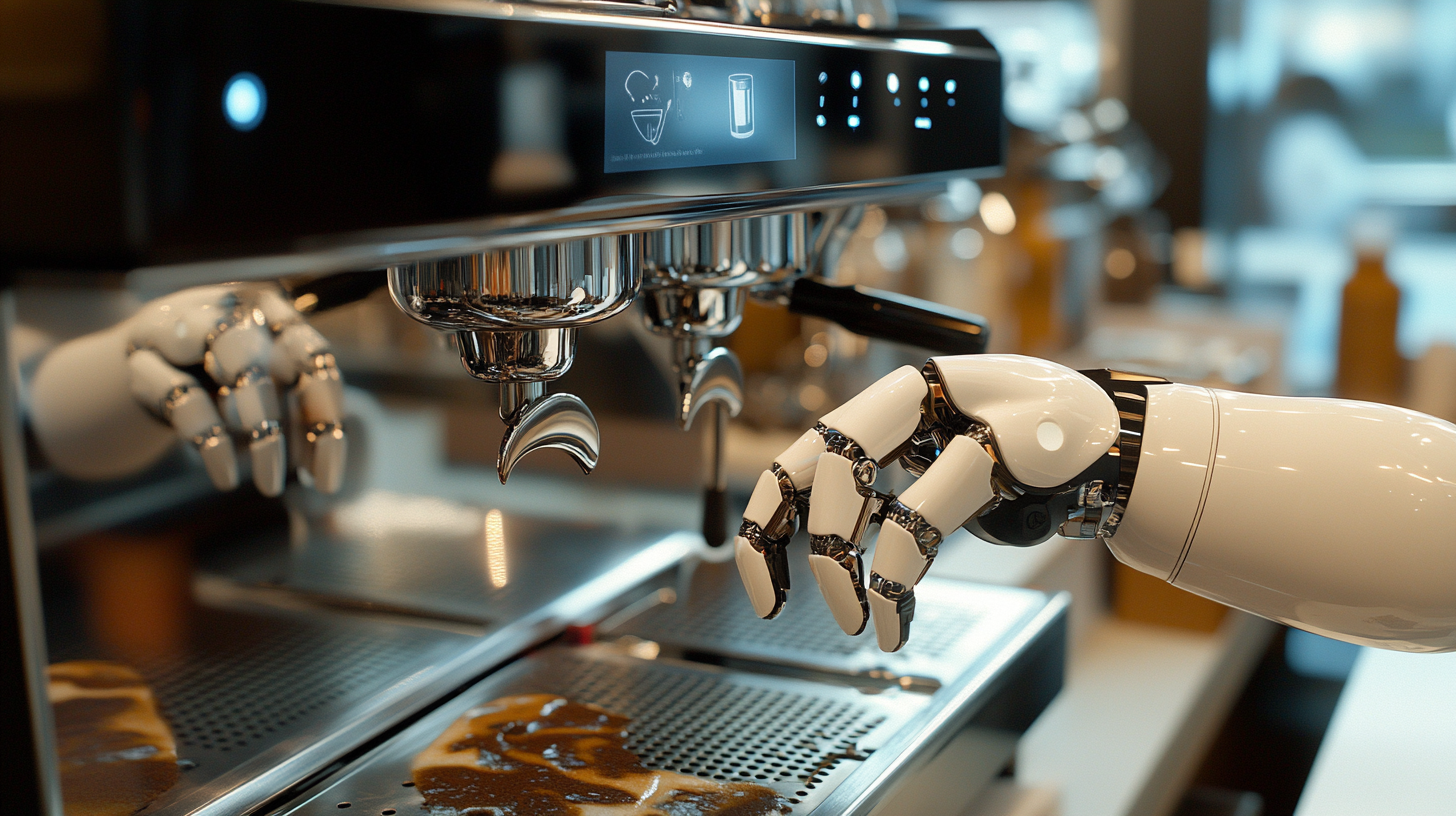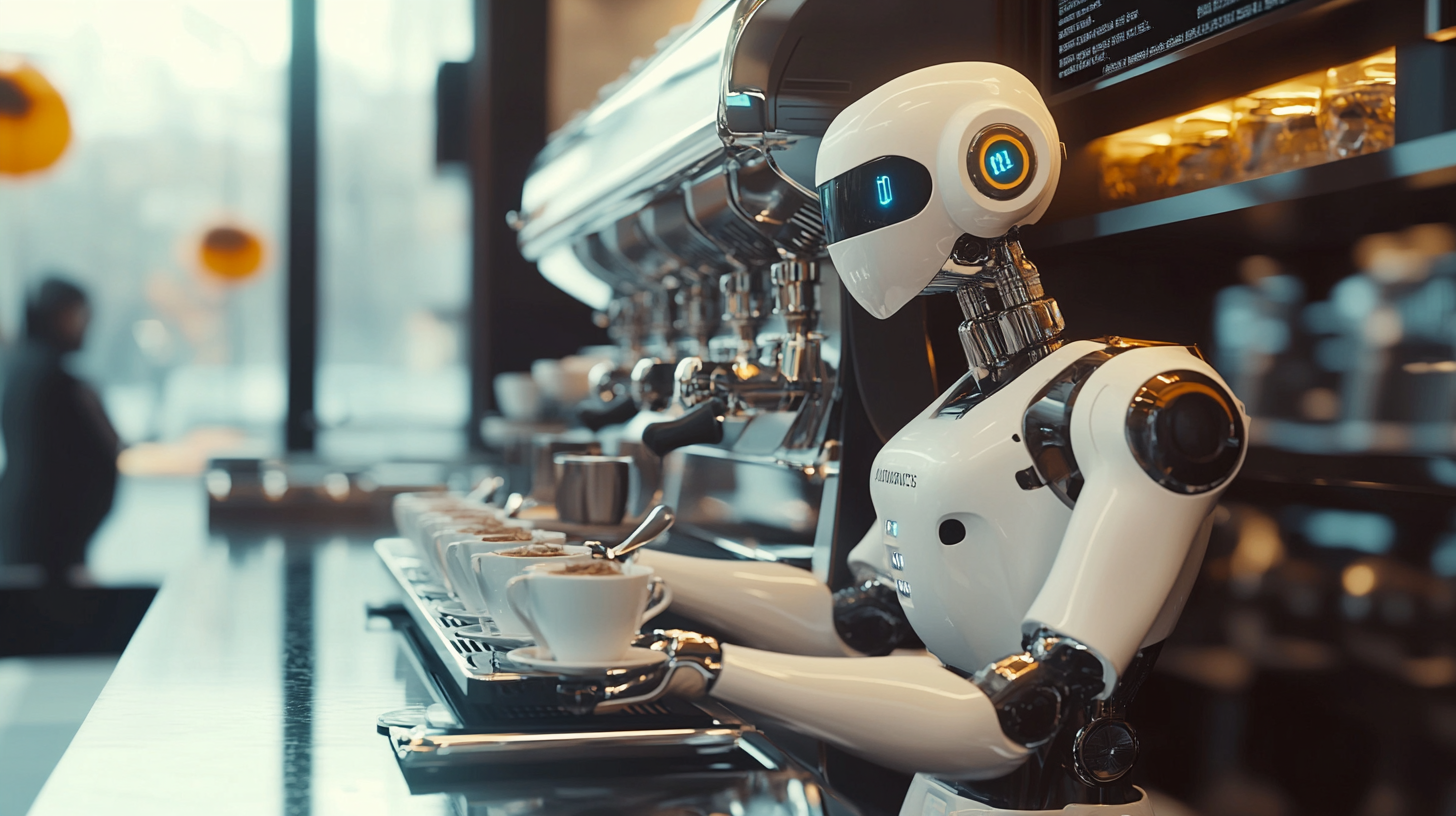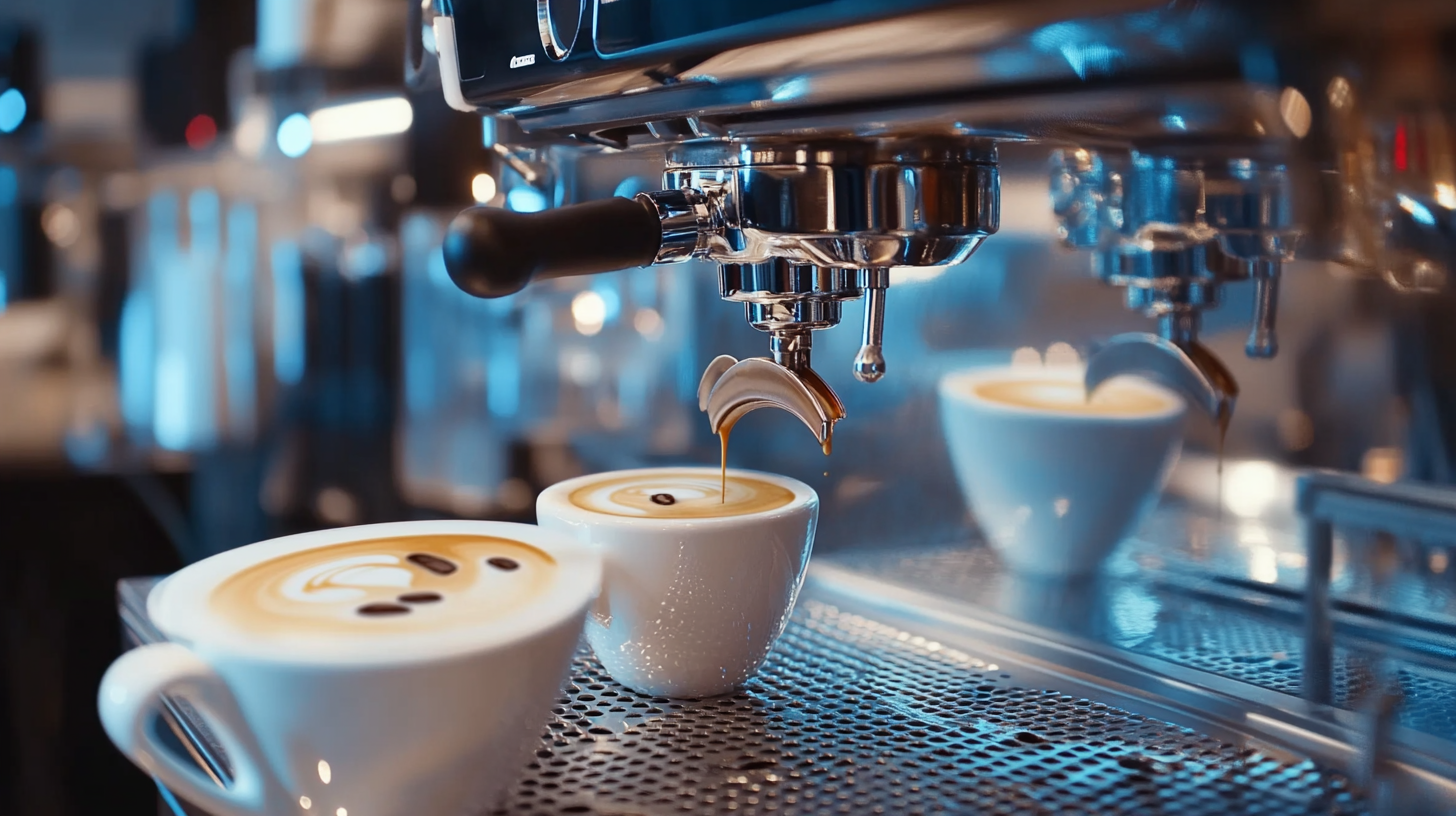Future Trends in Automated Coffee Service with Robot Baristas
With technology now a part of everyday life, the combination of robots and cooking shows no limits in reshaping the coffee industry. Truly, the arrival of the Robot Coffee Barista is already changing the way we think about and take coffee. It ensures quickness and uniformity in drink making and delivers great fun and thrill to coffee enthusiasts. The automated brewing system is projected to ease the workflow in the cafes, making it easy to pour high-quality coffee at impossible speeds.
In the Robot Barista automated coffee service, the next highlight would be in truly transforming how we experience coffee. Advanced artificial intelligence and machine learning enable these robotic counterparts with precision brewing skills and personalization options for beverages tailored to individual preferences and tastes. For now, a look into the trends toward the near future will reveal possible challenges and opportunities in this new field, which heralds a kind of working marriage between the dry and rigorous world of technology and timeless traditions of the coffee culture.

The Rise of Robot Baristas: Market Insights and Future Projections
Up and coming robot baristas indicate a paradigm shift in the coffee service sector, spurred by demand for automation and efficiency. Notable events such as the fifth Lujiazui International Coffee Culture Festival remind everyone of intelligent coffee machines and their rich potential to elevate customer experience. If that weren't enough, the presence of a myriad of gourmet coffee providers and creative lifestyle brands at the festival reiterated that technology already has a foothold within the very sanctum of everyday consumption and that, thus, the future of coffee service will be intertwined with automation. The latest consumption trends indicate strong coffee culture expansion in China, with coffee fast being integrated into many people's daily habits. The "2024 China Urban Coffee Development Report" described the coffee market as having given almost 20 percent compound annual growth for almost three years. The introduction of robotics in cafes and hotels brings a whole new dimension to consistency and innovation in beverage service. The concept of "无人化咖啡" (Unmanned Coffee) marks a new era in which hospitality meets automation, creating unique offerings such as the goji berry latte that is made by a machine and pleases the eye just as much as the palate. Thus, the advancement of robotic baristas is defining the coffee service landscape of the future and presents a host of opportunities for entrepreneurs and consumers alike. As these robots become ever more advanced, they will begin to learn preferences and create new flavors and change how we think about coffee. The evolution is not only about the ease of getting a cup of coffee-it celebrates creativity and is a living testimony to how technology can meaningfully enrich our lives.

Technological Advancements Driving Automation in Coffee Preparation
Supporters of the coffee industry believe this field would change dramatically due to the wonderful advances in automation. Robot baristas will become the most significant scene in history- and simultaneously give this seething potpourri of innovation and consumer requirement a heady new twist in the process through which coffee is made and served. From 2022 to 2032, a very promising scope of growth is expected for the coffee machine market on a global level; this really is a mixed bag of machines, from conventional espresso equipment to advanced bean-to-cup technologies that not only suit shifting consumer preferences but also speed and consistency.
By fully automating coffee machines, brews tend to be less complicated in preparation and operation by shortening the bloodlines of baristas and reducing labor exploitation to some extent. The result is not just making work more efficient but also providing kinds of experiences many consumers would otherwise miss. For instance, with improved ingredient detection and fully automatic dosing, it becomes possible to create personalized coffee specific to an individual's taste. The presence of self-service kiosks with robotic system entries makes their cafes more user-friendly and easy for coffee lovers over the casuals to order.
The advertisers are now using technology as a tool in this fierce competition-and that is how they will use it to draw in more clients and retain them. Combining loyalty programs with automated systems instills a strong sense of consumer engagement to keep them happy. In conclusion, the conjunction of automation and customer-centric design indeed appears to mark the dawn of a new era in the global coffee service industry, where robot baristas will not only tend to the demands of the customer today but will also challenge the definition of the possible in coffee preparation.

Consumer Preferences: How Automation is Shaping Coffee Culture
With increasing automation in every walk of life, the coffee culture is actually undergoing a transition due to the advent of robot baristas. Rapidly changing, consumer preferences now tend toward convenience and just the novelty offered by these automated coffee services. For many, the pleasure of a well-crafted espresso or latte- a drink made to precise specifications by a robot is a nice twist to the day's routine. This change is not only about efficiency but equally about a deep thirst for personalization, such as how all these advanced algorithms have made it possible to customize drink options to individual tastes.
Technology and coffee service together are redefining social interactions in the cafe world. Traditional coffee shops encourage a sense of community, whereas robot baristas create a different experience marked by an ambiguous touch-and-go across human-machine interaction. These firms pique the interest of their customers, creating opportunities for entertainment wherein visitors simply engage the robot with their queries and request drink-making demonstrations. The robot baristas capture information about consumer responses and preferences, thus creating an increasingly elaborate and acceptable list of drink-making options-the hallmark of a good user experience and customer loyalty to sustaining brands.
The automation of coffee culture is equally raising a lot of questions about sustainability and ethics. With their own potential for reducing waste and conserving resources, the automated services thus appeal to the eco-conscious consumer. Such businesses that adopt robot baristas to fight for sustainability will have an edge in attracting patrons that prefer environmental sustainability. The two merging characterizations of automation and sustainability offer a clue to the fact that the coffee culture future will thus not only be marked with technological advancements but also accommodate the demands changing in tandem with the customers.

Cost-Benefit Analysis: Economic Impact of Implementing Robot Baristas
A recent topic in automated cafes is the use of robot baristas to cut labor costs and find new ways to increase customer satisfaction. Huge savings in labor costs could be made. These savings from the dramatic representation of labor as a considerable part of a café's overhead may only be partially realized in long-term savings on wages, since this initial investment for robot systems is often worth up to several times over in an actual business's benefits. Furthermore, these machines can operate throughout the day and night, ensuring a continuous flow of customers even into the wee hours of the morning.
However, apart from savings in labor, robot baristas serve a rather more important purpose: they can produce consistent commodity: coffee. With brewing methods built into their robot systems that are exact, each drop of coffee will meet high standards and put more money in the coffee shop's pocket as there is less waste complaining over beverage "quality or standard". They also share collected customer preference and sales trend data, giving insights for business planning and inventory management. This data-driven approach will result in better decision-making and further efficient resource allocation within the café.
Of course, initial investments for robot baristas would involve quite hefty amounts. But then, given the considerable prospect of revenue generation, improved experience for customers, and operating efficiencies, they have more than enough justification for being adopted. With rapid technological advances, such robotic systems will become more and more integrated into coffee service, and they will surely redefine the world of the café business into a new normal in the automated service.
Challenges and Opportunities: Navigating the Automated Coffee Service Landscape
The huge rapid dynamic shift of automated coffee services, especially with the advent of robot baristas, now poses a veritable threat but much promise to the coffee industry. According to an International Coffee Organization report, global coffee consumption is expected to hit 200 million bags by 2025-an indication of the increased demand for more efficient service solutions. However, there is the challenge of acceptability by consumers and the need for sophisticated technology the moment coffee shops begin adopting robotic systems for their operations.
One of the biggest hurdles is the connotation of value and personalization that was associated with making coffee. The Technomic survey pointed out that 62% of consumers said they prefer handcrafted beverages, citing quality and personalization for sureness of their coffee experience. This is a barrier to automated systems that will have to prove they can deliver the same level of quality without fail. Initial capital investments associated with robotics installation would be huge, and the costs versus possible gains in efficiencies and profit margins have to be weighed well by businesses as well.
On the contrary, the advent of robot baristas has opened up unquantifiable doors for scalability and innovation in coffee. The global market for coffee robotics such as robot baristas will witness a staggering growth at a CAGR of 14% through 2030, due to innovations in artificial intelligence and machine learning. These technologies reduce service time and allow the making of more customized beverages based on the growing consumer tendency towards personalized foods and drinks. Most coffee businesses will thrive in their competitive future if they can deal effectively with these challenges while embracing automation advantages.